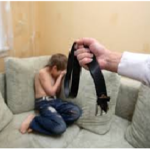How do parents know if they are meeting the developmental needs of their children? How do educators know when their interactions with children are no longer effective? How do care givers in Africa see children? How do you observe, interpret and report children’s traits, gestures and behaviours? Are teachers aware that sometimes when children test out behaviours, they are actually communicating with them? Why have educational learning circles failed in really helping to build children to their full potentials? These and more shall be my focal points inmy column –Understanding children.
Every child is born with equal opportunities with other children anywhere in the world. Guess what makes the difference: You and I, and the environment as we interact with the child. Every child experiences four planes of development in which the first (0 – 6 years) is the most effective in influencing the life of the child. Remember the Chinese saying: “Give us the first seven years of your child and we shall own his entire life”.Think of your characters and behaviours now as an adult and see if they are not embedded in your first six years in life. Children’s behaviours only reflect the type of adults around them. When loving adults surround a child, he simply grows to be respectful.
Behaviours scientists believe that early childhood is critical because, it is a period in which the language, literacy, sensorial, motor, social and emotional skills are developed. In fact, it is the period where the foundation for the child’s personality is laid. Unfortunately, this is the time most parents are less active in child oriented trainings at home. Some parents only scream at their children when they slam doors but they never taught them how to gently close doors before then.
Is it not sarcastic that a child that was nurtured in an atmosphere of aggression would be expected to be calm and tolerant? How would a child without life essential manipulative skills be expected to have a high IQ. Of course, children who throw tantrums would have perfected the art from adults who have little or no self-control.How would a child that is often insulted in the public have self-confidence? I think parenting in our part of the world is failing or has failed.
Children need adults that are loving, passionate and knowledgeable about child development to improve their lives and this brings out their uniqueness. Just look through your history and see how past years have influenced who you are today. Children expect their environment to be prepared to meet their developmental needs at every stage.
Child development involves growth and studies have shown that children at every developmental stage, tend to pose certain traits challenges as their behaviours and attitudes follow ever changing patterns. It is highly imperative for educators to have a good understanding of child development in order to effectively manage every child as a unique entity because no two children perfectly act or learn the same way. A good child manager earns from the child a sense of trust and security that builds their confidence to learn. For instance, a child that is crawling or pulling up or learning to walk might seem unsettled because of the need to learn how to coordinate his movements. It is now the responsibility of his educators to ensure his learning experiences involve a lot of movements to help him redirect his energies. It is through this among others that the child can attain a perfect harmony between his physical and spiritual streams of energies.
As children grow, seasonal educators ensure that every child is safe, healthy, mentally alerted, emotionally stable, socially competent and physically ready to learn the essential skills at every developmental stage through carefully planned, constructive, multisensory and child-centered activities.It’s an established fact that children prefer constructive work to play. In such learning atmosphere, children enjoy freedom within limits as they unconsciously display their sense of order and structure after internalizing the concepts from their routines. A child that has been trained to wait for his turn would naturally respect other people’s turns. Parents need periodic exposures to developmental guidelines so as to recognize the needs of their children at every stage. This would aid them to be on the same page with their children’s educators.
Some foundational educators erroneously believe that early childhood education is just all about the effectiveness of the teaching methodology and the materials used in preparing the child’s learning experiences but the scope actually extends to observation being a major role player in meeting the developmental needs of children. For child care givers and educators, preliminary assessment starts with observing every child’s attitude, how he learns, interact with his environment and others, and how he reacts to new concepts and situations. This process reveals the child’s pattern in skill proficiency and developmental progress. Observation is always followed by note taking (documentation)and reporting. During recording, educators must report as it is and not interpret based on emotions. For example the statement “Aisha screamed five times today” is preferred to “Aisha was naughty today”. The first opened doors to other findings while the latter was judgmental and conclusive. The first centered on studying Aisha’s actions and inactions while preserving her personality and the other judged her personality that is still in the making without really reporting anything about her action.The mastery of the art of individualized observation, recording and reporting will guide the educator on how best to build the child’s capacities and uniqueness to his full potentials.
The boom of every child’s uniqueness depends greatly on the ability of his educators to explore their understanding of the child’s learning pace, patterns and preferences in order to make him grow distinct in his full capacity for the betterment of mankind.
Maria Montessori opined that: “The child’s development follows a path of successive stages of independence and our knowledge of this must guide us in our behaviour towards him.”(The Absorbent Mind).
Take a bold step today and make every child in your care unique. Click here to enroll for our Montessori Diploma Programmes.
Do you also want to become a certified Early Childhood Montessori Professional, Trainer or Consultant Internationally? Click here to find out how.
4th of June, 2018.
Abu Abdirrahman,
Mal. Mas’ud Abdul- Majeed(ACPMI,MIAM, DMTP, MECCP,IMTTINCT)
Kaduna center Manager/ Country Course coordinator
IMTTI,India-Nigeria.







